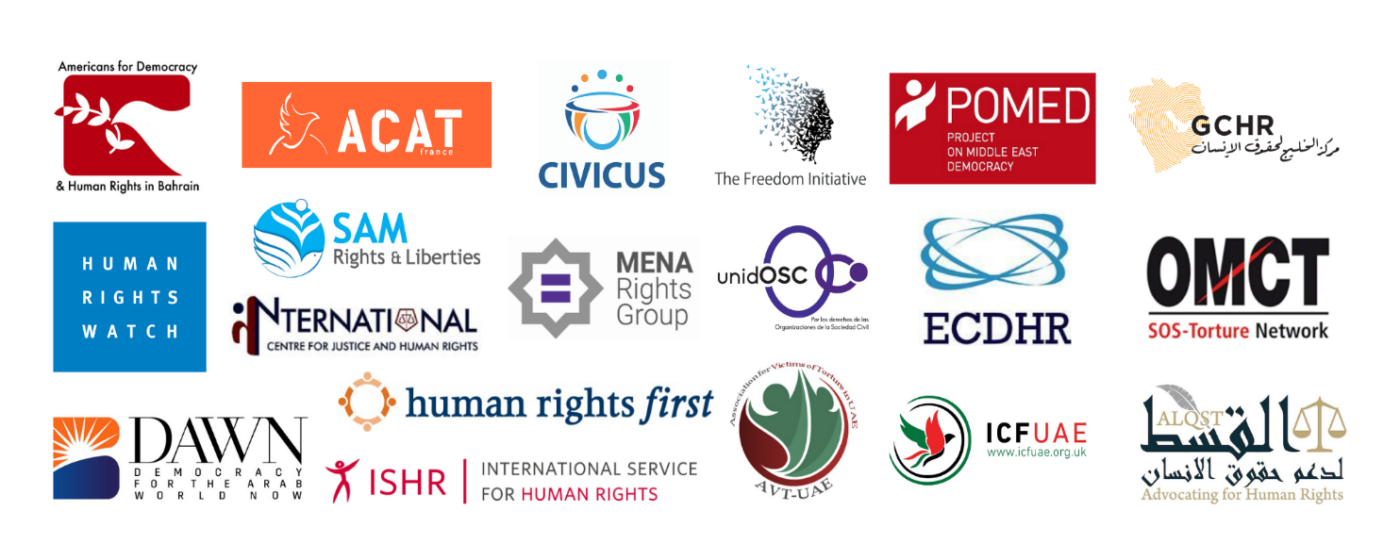Dear Secretary General,
We, the undersigned, are writing to express our deep concern over recent reports announcing the candidacy of Major General Ahmed Nasser Al Raisi, the General Inspector of the United Arab Emirates’ (UAE) Ministry of Interior, for the presidency of the International Criminal Police Organisation (INTERPOL). The elections will be held during the General Assembly on December 7-8 in Abu Dhabi, UAE.
We believe that the appointment of Mr Al Raisi would both undermine the mission and reputation of INTERPOL and severely impact the ability of the organisation to carry out its mission effectively and in good faith. We are additionally concerned over the lack of transparency and oversight in the election process: information on the candidates running for president have not been made public, nor were the candidates subjected to vetting procedures by state parties and civil society actors.
While we understand that the Secretary General is responsible for the operations of INTERPOL, the president must embody its values and mission. Article two of INTERPOL’s Constitution states that the aim of the organisation is “to ensure and promote the widest possible mutual assistance between all criminal police authorities within the limits of the laws existing in the different countries and in the spirit of the ‘Universal Declaration of Human Rights.’”
Given the UAE’s poor human rights record, including the systematic use of torture and ill-treatment in state security facilities, Mr Al Raisi’s appointment as president would damage INTERPOL’s reputation and stand in great contradiction to the spirit of the Universal Declaration of Human Rights and the organisation’s mission. In this regard, we would like to recall previous reports of the UAE’s misuse of INTERPOL red notices.
As the current Inspector General at the Ministry of Interior, Mr Al Raisi’s responsibilities include overseeing the organisation and management of the security and police forces in the UAE, conducting periodic inspections into various ministry departments, and investigating complaints against the police and security forces and their members. Mr Al Raisi reports directly to the deputy prime minister and the minister of interior.
As a state representative of the UAE, Mr Al Raisi is part of a security apparatus that continues to systematically target peaceful critics, rendering civic space virtually non-existent in the country. Lawyers, journalists, political activists and human rights defenders in the UAE have been subjected to harsh reprisals, intimidation tactics, enforced disappearances, torture, and arbitrary detention as a result of peacefully expressing their opinions, including on trumped-up “terrorism” charges. In a recent Opinion, the United Nations Working Group on Arbitrary Detention (WGAD) expressed concern over the “systemic problem with arbitrary detention in the United Arab Emirates,” adding that systematic deprivations of liberty in violation of international law “may constitute crimes against humanity.”
Furthermore, the UAE is responsible for grave violations of human rights and humanitarian law beyond the country’s borders. Despite announcing the withdrawal of most of its ground troops from Yemen in 2019, the UAE remains part of the Saudi-led military operations, continues to maintain a presence in Aden and southern governorates, and continues to provide support for certain Yemeni forces who have committed grave abuses over the past several years.
Lastly, the election of the UAE’s security chief as president of INTERPOL would undermine the agency’s credibility in combating cybercrime. We recall that as part of its mission, INTERPOL “helps member countries to identify, triage and coordinate the response to cyber threats […] [and] assist[s] countries in developing prevention and disruption strategies.” Yet, the Emirati authorities have long resorted to state-sponsored spyware to target dissidents, journalists, and civil society activists.
A 2019 Reuters investigation exposed a clandestine team of former US intelligence operatives, known as Project Raven, which the UAE National Electronic Security Authority recruited to help the UAE engage in surveillance of other governments, foreign journalists, and human rights activists. Emirati human rights defender Ahmed Mansoor, who was disappeared by Emirati security forces in 2017 after he was subjected to several cyberattacks, was one such target of Project Raven. He is currently serving a 10-year prison sentence on charges related to his human rights activism. Loujain al-Hathloul, a prominent Saudi women’s rights defender, was also subjected to cyberattacks by the UAE authorities who hacked into her email before arresting and forcibly transferring her to Saudi Arabia in 2018. She remains in prison today in reprisal for her activism.
In light of the above, we believe that it is antithetical to the mission and aims of INTERPOL that the organisation be represented by an individual and a state that have been repeatedly responsible for grave human rights violations. We additionally believe that candidates for the presidency of INTERPOL should have their suitability for the role scrutinised through proper vetting processes that seek to uphold INTERPOL’s commitment to international human rights standards. The United Arab Emirates, in the person of Mr Ahmad Al Raisi, should therefore not be in a position to head the International Criminal Police Organisation.
In light of the above, we urge you to share the aforementioned concerns with INTERPOL’s member countries ahead of the appointment of the organisation’s next president.
We thank you for your consideration and remain available should you wish to discuss this matter.
Sincerely,
List of Signatories:
L’Action des Chrétiens Pour l’Abolition de la Torture – France
AlQST for Human Rights
Americans for Democracy & Human Rights in Bahrain
Association for Victims of Torture in UAE
CIVICUS
Democracy for the Arab World Now (DAWN)
European Centre for Democracy and Human Rights
The Freedom Initiative
Gulf Centre for Human Rights
Human Rights First
Human Rights Watch
International Campaign for Freedom in the UAE
International Centre for Justice and Human Rights
International Service for Human Rights
MENA Rights Group
L’Organisation Mondiale Contre la Torture (OMCT)
Project on Middle East Democracy (POMED)
SAM Organization for Rights and Liberties
UnidOSC, Mexico





